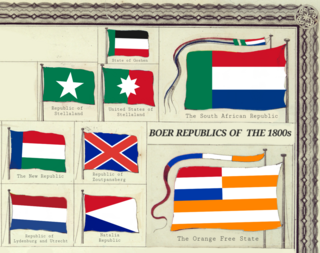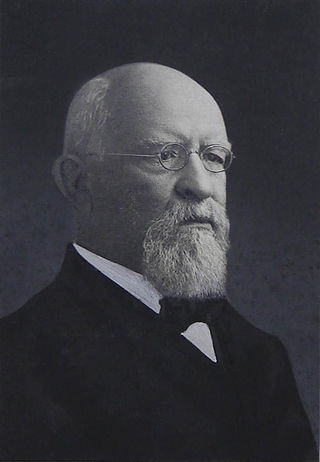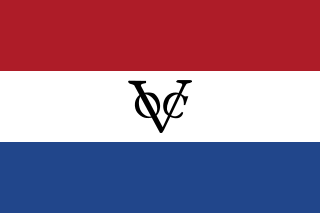Related Research Articles

The Cape Colony, also known as the Cape of Good Hope, was a British colony in present-day South Africa named after the Cape of Good Hope. It existed from 1795 to 1802, and again from 1806 to 1910, when it united with three other colonies to form the Union of South Africa, then became the Cape Province, which existed even after 1961, when South Africa had become a republic, albeit, temporarily outside the Commonwealth of Nations (1961–94).
The Anglo-Dutch Treaty of 1814 was signed by the United Kingdom of Great Britain and Ireland and the Sovereign Principality of the United Netherlands in London on 13 August 1814.

The Great Trek was a northward migration of Dutch-speaking settlers who travelled by wagon trains from the Cape Colony into the interior of modern South Africa from 1836 onwards, seeking to live beyond the Cape's British colonial administration. The Great Trek resulted from the culmination of tensions between rural descendants of the Cape's original European settlers, known collectively as Boers, and the British Empire. It was also reflective of an increasingly common trend among individual Boer communities to pursue an isolationist and semi-nomadic lifestyle away from the developing administrative complexities in Cape Town. Boers who took part in the Great Trek identified themselves as voortrekkers, meaning "pioneers", "pathfinders" in Dutch and Afrikaans.

Khoekhoen are the traditionally nomadic pastoralist indigenous population of southwestern Africa. They are often grouped with the hunter-gatherer San peoples. The designation "Khoekhoe" is actually a kare or praise address, not an ethnic endonym, but it has been used in the literature as an ethnic term for Khoe-speaking peoples of Southern Africa, particularly pastoralist groups, such as the !Ora, !Gona, Nama, Xiri and ǂNūkhoe nations.

The Boer republics were independent, self-governing republics formed by Dutch-speaking inhabitants of the Cape Colony and their descendants. The founders – variously named Trekboers, Boers and Voortrekkers – settled mainly in the middle, northern, north-eastern and eastern parts of present-day South Africa. Two of the Boer republics achieved international recognition and complete independence: the South African Republic and the Orange Free State. The republics did not provide for the separation of church and state, initially allowing only the Dutch Reformed Church, and later also other Protestant churches in the Calvinist tradition. The republics came to an end after the Second Boer War of 1899–1902, which resulted in British annexation and later incorporation of their lands into the Union of South Africa.

The Griquas is a subgroup of mixed race heterogeneous former Khoe-speaking nations in Southern Africa with a unique origin in the early history of the Dutch Cape Colony. Under apartheid, they were given a special racial people classification under the broader category of "Coloured". They are Cape Coloureds who participated in the Great Trek, forming "Griqua States".

Jan Hendrik Hofmeyr was a politician in the Cape Colony. He was affectionately known as Onze Jan, "our Jan" in Dutch.
The following lists events that happened during the 1790s in South Africa.
The following lists events that happened during the 1700s in South Africa.
The following lists events that happened during the 1730s in South Africa.

Nama are an African ethnic group of South Africa, Namibia and Botswana. They traditionally speak the Nama language of the Khoe-Kwadi language family, although many Nama also speak Afrikaans. The Nama People are the largest group of the Khoikhoi people, most of whom have disappeared as a group, except for the Namas. Many of the Nama clans live in Central Namibia and the other smaller groups live in Namaqualand, which today straddles the Namibian border with South Africa.

Simon van der Stel was the first Governor of the Dutch Cape Colony (1691), the settlement at the Cape of Good Hope. He was interested in botany, establishing vineyards Groot and Klein Constantia, and producing a famous dessert wine. He is considered one of the founders of South African viticulture.

Ryk Tulbagh was Governor of the Dutch Cape Colony from 27 February 1751 to 11 August 1771 under the Dutch East India Company (VOC).

Cape Mesurado, also called Cape Montserrado, is a headland on the coast of Liberia near the capital Monrovia and the mouth of the Saint Paul River. It was named Cape Mesurado by Portuguese sailors in the 1560s. It is the promontory on which African American settlers established the city now called Monrovia on 25 April 1822.
Jager Afrikaner was the third Captain of the Orlam in South West Africa, succeeding his father Klaas Afrikaner at around 1800. He was one of the founders of Namibia's first systematic settlement in an engineering sense, ǁKhauxaǃnas. After his death in 1823 his son Jonker Afrikaner succeeded him as Captain of the Afrikaner Orlams.

The Cape Colony was a Dutch United East India Company (VOC) colony in Southern Africa, centered on the Cape of Good Hope, from where it derived its name. The original colony and its successive states that the colony was incorporated into occupied much of modern South Africa. Between 1652 and 1691, it was a Commandment, and between 1691 and 1795, a Governorate of the United East India Company (VOC). Jan van Riebeeck established the colony as a re-supply and layover port for vessels of the VOC trading with Asia. The Cape came under VOC rule from 1652 to 1795 and from 1803 to 1806 was ruled by the Batavian Republic. Much to the dismay of the shareholders of the VOC, who focused primarily on making profits from the Asian trade, the colony rapidly expanded into a settler colony in the years after its founding.
The Afrikaner Bond was founded as an anti-imperialist political party in 19th century southern Africa. While its origins were largely in the Orange Free State, it came to have a significant presence across the region, and especially in the Cape Colony and the Transvaal.

Slavery in South Africa existed from 1653 in the Dutch Cape Colony until the abolition of slavery in the British Cape Colony on 1 January 1834. This followed the British banning the trade of slaves between colonies in 1807, with their emancipation by 1834. Beyond legal abolition, slavery continued in the Transvaal though a system of inboekstelsel.

South Africa – Sri Lanka relations refers to the current and historical relations between South Africa and Sri Lanka. The Government of South Africa established its resident diplomatic Mission in Colombo in September 2007. HE Sirisena Amarasekara is the current Sri Lankan High Commissioner to South Africa while HE Ms RP Marks is the current South African High Commissioner to Sri Lanka.

Stormberg Commando was a light infantry regiment of the South African Army. It formed part of the South African Army Infantry Formation as well as the South African Territorial Reserve.
References
See Years in South Africa for list of References